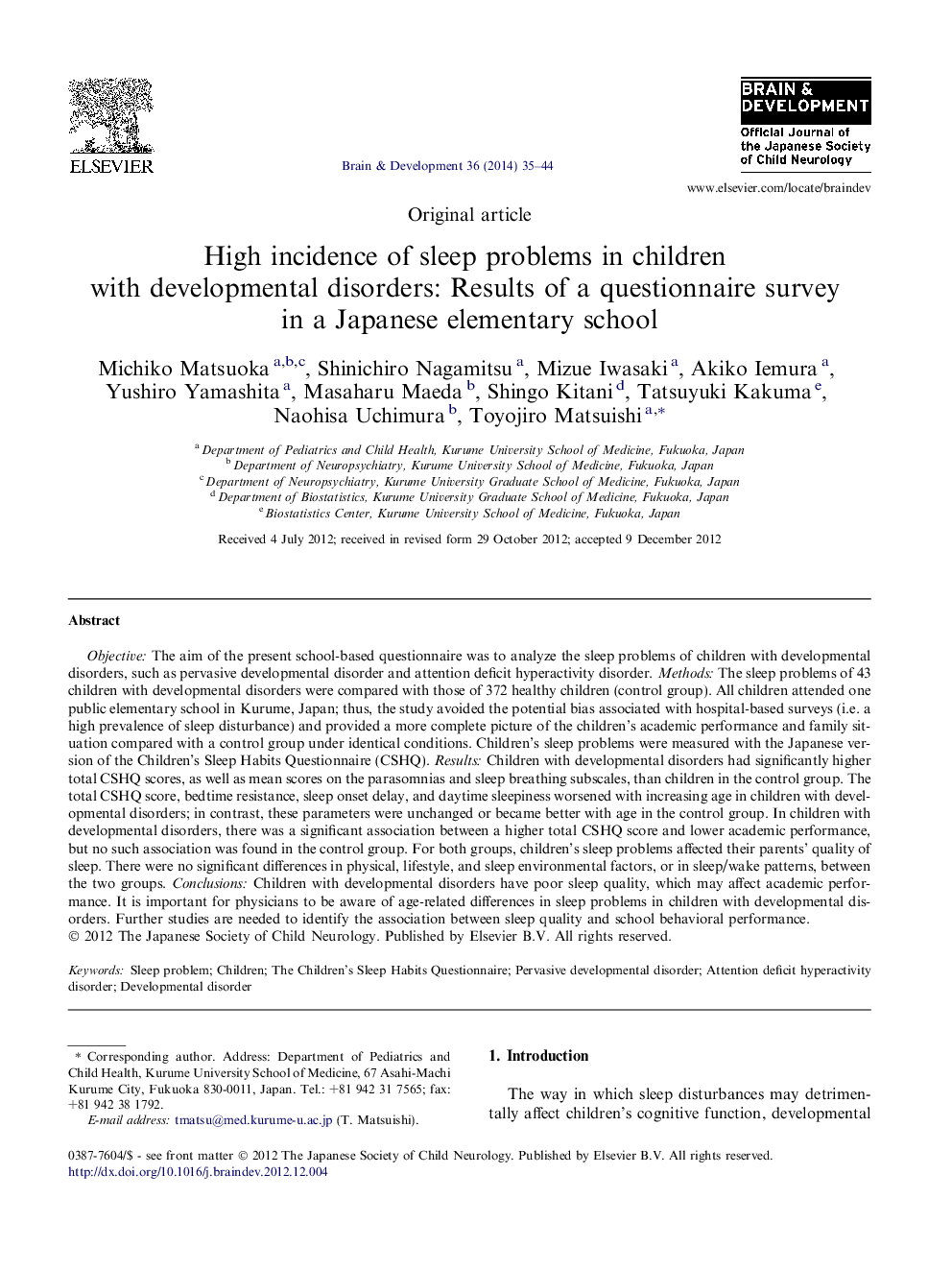| Article ID | Journal | Published Year | Pages | File Type |
|---|---|---|---|---|
| 3037105 | Brain and Development | 2014 | 10 Pages |
Objective: The aim of the present school-based questionnaire was to analyze the sleep problems of children with developmental disorders, such as pervasive developmental disorder and attention deficit hyperactivity disorder. Methods: The sleep problems of 43 children with developmental disorders were compared with those of 372 healthy children (control group). All children attended one public elementary school in Kurume, Japan; thus, the study avoided the potential bias associated with hospital-based surveys (i.e. a high prevalence of sleep disturbance) and provided a more complete picture of the children’s academic performance and family situation compared with a control group under identical conditions. Children’s sleep problems were measured with the Japanese version of the Children’s Sleep Habits Questionnaire (CSHQ). Results: Children with developmental disorders had significantly higher total CSHQ scores, as well as mean scores on the parasomnias and sleep breathing subscales, than children in the control group. The total CSHQ score, bedtime resistance, sleep onset delay, and daytime sleepiness worsened with increasing age in children with developmental disorders; in contrast, these parameters were unchanged or became better with age in the control group. In children with developmental disorders, there was a significant association between a higher total CSHQ score and lower academic performance, but no such association was found in the control group. For both groups, children’s sleep problems affected their parents’ quality of sleep. There were no significant differences in physical, lifestyle, and sleep environmental factors, or in sleep/wake patterns, between the two groups. Conclusions: Children with developmental disorders have poor sleep quality, which may affect academic performance. It is important for physicians to be aware of age-related differences in sleep problems in children with developmental disorders. Further studies are needed to identify the association between sleep quality and school behavioral performance.
